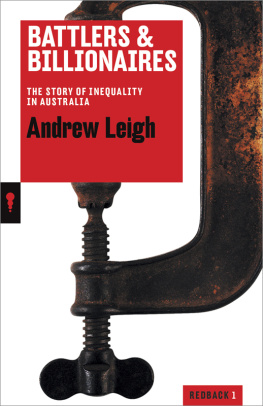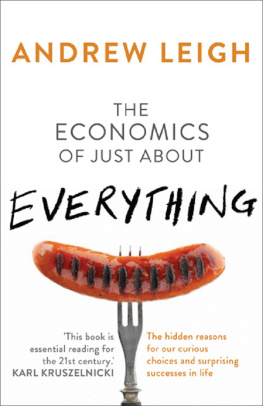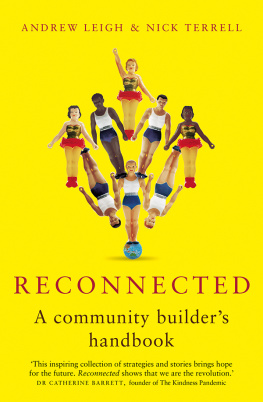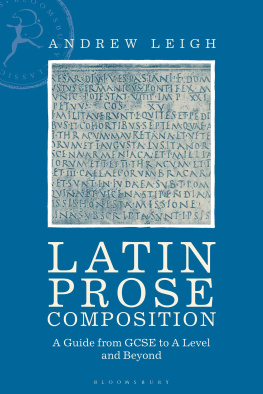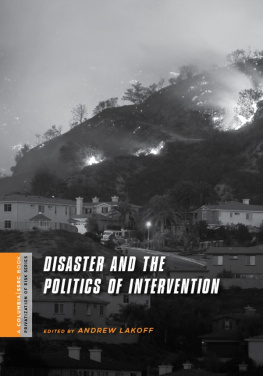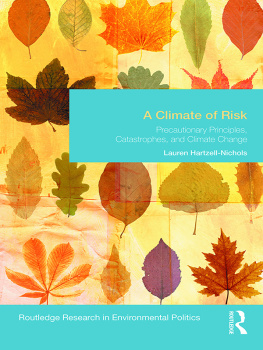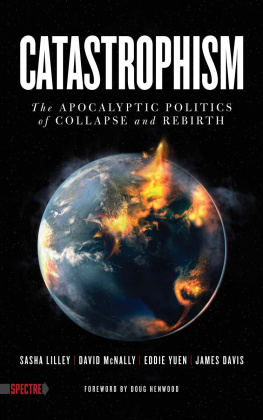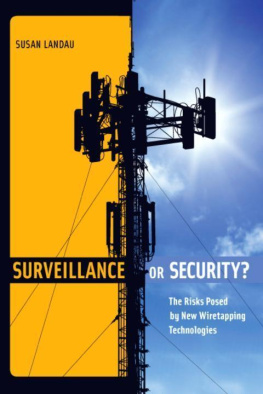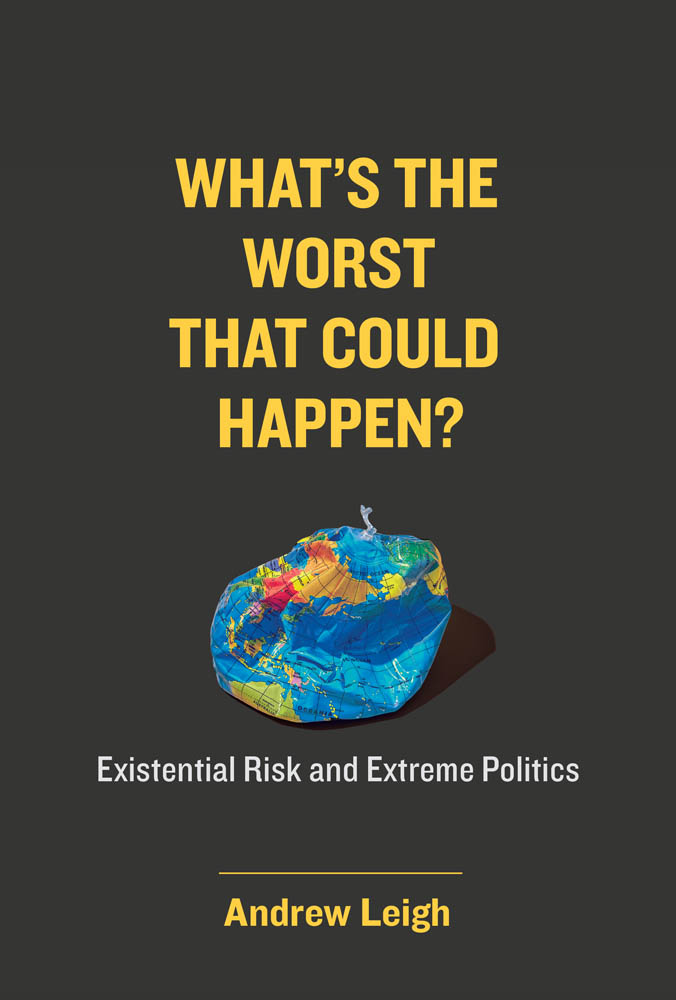
Whats the Worst That Could Happen?
Whats the Worst That Could Happen?
Existential Risk and Extreme Politics
Andrew Leigh
The MIT Press
Cambridge, Massachusetts | London, England
2021 Andrew Leigh
All rights reserved. No part of this book may be reproduced in any form by any electronic or mechanical means (including photocopying, recording, or information storage and retrieval) without permission in writing from the publisher.
The MIT Press would like to thank the anonymous peer reviewers who provided comments on drafts of this book. The generous work of academic experts is essential for establishing the authority and quality of our publications. We acknowledge with gratitude the contributions of these otherwise uncredited readers.
Library of Congress Cataloging-in-Publication Data
Names: Leigh, Andrew, 1972- author.
Title: Whats the worst that could happen? : existential risk and extreme politics / Andrew Leigh.
Description: Cambridge, Massachusetts : The MIT Press, 2021. | Includes bibliographical references and index. | Summary: An analysis of the ways in which populist politics place our long-term well-being at risk, exploring pandemics, climate change, nuclear war and other issues--Provided by publisher.
Identifiers: LCCN 2021000480 | ISBN 9780262046077 (hardcover)
Subjects: LCSH: Populism. | Radicalism. | Democracy. | Existentialism.
Classification: LCC JC423 .L455 2021 | DDC 320.56/62--dc23
LC record available at https://lccn.loc.gov/2021000480
d_r0
Contents
Why the Future Matters
Imagine a world in which each persons days are filled with beauty, meaning, and commitmentdoing deep work, spending plenty of time with friends and family, savoring delicious food, and enjoying exotic holidays. Suppose that everyone can live in perfect health for more than a century. In this world, people are secure in their neighborhoods, without the need to fear for their property or safety.
Now imagine that humanity uses this opportunity to expand our knowledge and wisdomexploring the frontiers of science and the humanities. Suppose we reshaped careers so that everyone could experience a sense of flow in their job and take a break from work when they wished. Imagine that we solve the problem of commutingeffectively stretching the day so that people can enjoy more leisure, work, or sleep. Think how much better the world would be if we could make a lasting impact on mental illness through better treatments for depression, anxiety, and addiction. Suppose that cancer has been cured, obesity has a simple treatment, and even the common cold has been vanquished.
Think how much more beautiful we could make the spaces around us. To live in an apartment designed by Antoni Gaud, stroll in a park designed by Martha Schwartz, or enjoy the sculptures of Teresita Fernndez is a pleasure reserved for a fortunate few in todays world. But imagine how much joy it would bring us to live in a world where all our living spaces were conceived by extraordinary designers and constructed by master craftspeople.
Such a world may seem closer to the heavenly paradise offered by the worlds great religions than to our lives on earth. Attaining it is a pipe dream for our generation. Indeed, there is little chance we could attain it in the twenty-first or even twenty-second century. Yet this future is probable if humans can survive for another thousand years. And it is almost certain if humans can survive for ten thousand years. After all, the past ten thousand years has seen humans progress from foraging nomads to digitally connected urbanites, and the pace of change is accelerating, with each century more innovative than the previous one.
But we have to get there first.
In 1947, a group of concerned scientists created the Doomsday Clocksymbolizing how close humans are to Armageddon. Initially, the clock was arbitrarily set at seven minutes to midnight. Two years later, when the Soviet Union tested its first nuclear bomb, the clock was moved to three minutes to midnight. With the signing of the partial atomic test ban treaty in 1963, it was moved back to twelve minutes to midnight. Over the years, the Doomsday Clock has been moved forward and backward twenty-four times. In January 2020, it was moved to one minute and twenty seconds to midnight. These scientists estimate that the world is closer to destruction now than at any other time.
The catastrophic risks that threaten our species have been the focus of so many movies that you could run a disaster film festival. Weve seen movies featuring natural pandemics (Outbreak, Carriers, and Contagion), bioterrorism (12 Monkeys, V for Vendetta, and 28 Days Later), asteroid strikes (Deep Impact, Armageddon, and Judgment Day), nuclear war (Dr. Strangelove, On the Beach, and The Day After), artificial intelligence (Avengers: The Age of Ultron, The Matrix, and Terminator), and climate change (Waterworld, Mad Max: Fury Road, and Blade Runner 2049).
These dangers have had us on the edge of our movie seats, but they havent gotten most people off the couch to act. Youre more likely to get robbed if you leave your wallet on a park bench than if you leave your home unlocked. But it doesnt follow that an unattended wallet is a bigger risk than an unlocked house. Losing everything of value in your house is unlikely to occur, but horribly upsetting if it does.
The same psychological mistake applies to public policy. Policy makers sweat the details of programs to regulate stock markets or build stadiums. But we rarely devote as much attention to reducing long-term risks. Policy deals largely in the world of immediate certainties, not distant hazards.
How likely is it that humanity could end? Experts working on catastrophic risk have estimated the chances of disaster for a wide range of the hazards that our species faces. Adding up the threats, philosopher Toby Ord estimates the odds that humanity could become extinct over the next century at one in six, with an out-of-control superintelligence, bioterrorism, and totalitarianism among the largest risks. He argues that most of the risks have arisen because technology has advanced more rapidly than safeguards to keep it in check. To encapsulate the situation facing humanity, Ord titled his book The Precipice.
A one in six chance of going the way of dodos and dinosaurs effectively means we are playing a game of Russian roulette with humanitys future. Six chambers. One bullet. Even the most foolhardy soldier usually finds an excuse not to play Russian roulette. And thats when just their own life is at stake. In considering extinction risk, were contemplating not one fatality but the death of billions or possibly trillions of peoplenot to mention countless animals.
It can seem impossible to imagine our species becoming extinct due to a catastrophe such as nuclear war, asteroids, or a pandemic. But in reality, the danger surpasses plenty of perils we already worry about. One way to put catastrophic risk into perspective is to compare it with more familiar risks. If extinction risk poses a one in six risk to our species over the next century, then it means that it is far more hazardous than many everyday risks. Specifically, it suggests that the typical US resident is fifteen times more likely to die from a catastrophic risksuch as nuclear war or bioterrorismthan in car crash.
Extinction risk outstrips other dangers too. Ask people about their greatest fears, and youll get answers like street violence, snakes, heights, and terrorism. But in reality, these are much less hazardous than catastrophic risks. People in the United States are 31 times more likely to die from a catastrophic risk than from homicide. Catastrophic risk is 3,519 times likelier to kill than falls from a height, and 6,194 times more likely to kill than venomous plants and animals. If you have ever worried about any of these threats, you should be more fearful about catastrophic risk. Extinction risks arent just more dangerous than any of them; they are more hazardous than all of them put together. Catastrophic risk poses a greater danger to the life of the typical US resident than car accidents, murder, drowning, high falls, electrocution, and rattlesnakes put together.
Next page

